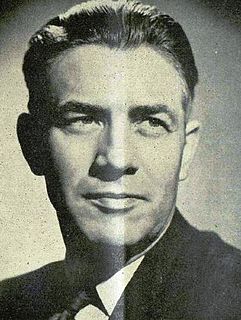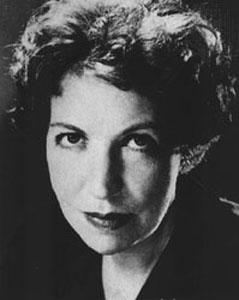A Quote by Lyndon B. Johnson
The American city should be a collection of communities where every member has a right to belong. It should be a place where every man feels safe on his streets and in the house of his friends. It should be a place where each individual's dignity and self-respect is strengthened by the respect and affection of his neighbors. It should be a place where each of us can find the satisfaction and warmth which comes from being a member of the community of man. This is what man sought at the dawn of civilization. It is what we seek today.
Quote Topics
Related Quotes
Ownership by delegation is a contradiction in terms. When men say, for instance (by a false metaphor), that each member of the public should feel himself an owner of public property-such as a Town Park-and should therefore respect it as his own, they are saying something which all our experience proves to be completely false. No man feels of public property that it is his own; no man will treat it with the care of the affection of a thing which is his own.
The lesson this teaches and which every Afro-American should ponder well, is that a Winchester rifle should have a place of honor in every black home, and it should be used for that protection which the law refuses to give. When the white man who is always the aggressor knows he runs as great a risk of biting the dust every time his Afro-American victim does, he will have greater respect for Afro-American life. The more the Afro-American yields and cringes and begs, the more he has to do so, the more he is insulted, outraged and lynched.
The question that faces every man born into this world is not what should be his purpose, which he should set about to achieve, but just what to do with life? The answer, that he should order his life so that he can find the greatest happiness in it, is more a practical question, similar to that of how a man should spend his weekend, then a metaphysical proposition as to what is the mystic purpose of his life in the scheme of the universe.
The historian should be fearless and incorruptible; a man of independence, loving frankness and truth; one who, as the poets says, calls a fig a fig and a spade a spade. He should yield to neither hatred nor affection, not should be unsparing and unpitying. He should be neither shy nor deprecating, but an impartial judge, giving each side all it deserves but no more. He should know in his writing no country and no city; he should bow to no authority and acknowledge no king. He should never consider what this or that man will think, but should state the facts as they really occurred.
The Great Society is a place where every child can find knowledge to enrich his mind and to enlarge his talents. It is a place where the city of man serves not only the needs of the body and the demands of commerce but the desire for beauty and the hunger for community. It is a place where men are more concerned with the quality of their goals than the quantity of their goods.
Human life is not some sort of race or game in which each person should start from an identical mark. It is an attempt by each man to be as happy as possible. And each person could not begin from the same point, for the world has not just come into being; it is diverse and infinitely varied in its parts. The mere fact that one individual is necessarily born in a different place from someone else immediately insures that his inherited opportunity cannot be the same as his neighbor's.
Every young man should aim at independence and should prepare himself for a vocation; above all, he should so manage his life that the steps of his progress are taken without improper aids; that he calls no one master, that he does not win or deserve the reputation of being a tool of others, and that if called to public service he may assume its duties with the satisfaction of knowing that he is free to rise to the height of his opportunity.
A man follows the path laid out for him. He does his duty to God and his King. He does what he must do, not what pleases him. God's truth, boy, what kind of world would this be if every man did what pleased him alone? Who would plough the fields and reap the harvest, if every man had the right to say, 'I don't want to do that.' In this world there is a place for every man, but every man must know his place.
Homes should be an anchor, a safe harbor, a place of refuge, a place where families dwell together, a place where children are loved. In the home, parents should teach their children the great lessons of life. Home should be the center of one’s earthly experience, where love and mutual respect are appropriately blended.
In the first section of the Doctrine and Covenants we read that 'the Lord shall come to recompense unto every man according to his work, and measure to every man according to the measure which he has measured to his fellow man.' (D&C 1:10.) This principle, showing the manner by which God will judge us, puts a new light upon the commandment to love our neighbors as ourselves, and should persuade us to take that law seriously.
If man were immortal he could be perfectly sure of seeing the day when everything in which he had trusted should betray his trust, and, in short, of coming eventually to hopeless misery. He would break down, at last, as every good fortune, as every dynasty, as every civilization does. In place of this we have death.
My conception of the audience is of a public each member of which is carrying about with him what he thinks is an anxiety, or a hope, or a preoccupation which is his alone and isolates him from mankind and in this respect at least the function of a play is to reveal him to himself so that he may touch others by virtue of the revelation of his mutuality with them. If only for this reason I regard the theater as a serious business, one that makes or should make man more human, which is to say, less alone.
Who could deny that privacy is a jewel? It has always been the mark of privilege, the distinguishing feature of a truly urbane culture. Out of the cave, the tribal teepee, the pueblo, the community fortress, man emerged to build himself a house of his own with a shelter in it for himself and his diversions. Every age has seen it so. The poor might have to huddle together in cities for need's sake, and the frontiersman cling to his neighbors for the sake of protection. But in each civilization, as it advanced, those who could afford it chose the luxury of a withdrawing-place.
If the world is made to furnish each individual with the means of livelihood and the instruments for his growth and progress, each man has therefore the right to find in the world what is necessary for himself. The recent Council reminded us of this: "God intended the earth and all that it contains for the use of every human being and people. Thus, as all men follow justice and unite in charity, created goods should abound for them on a reasonable basis."
































